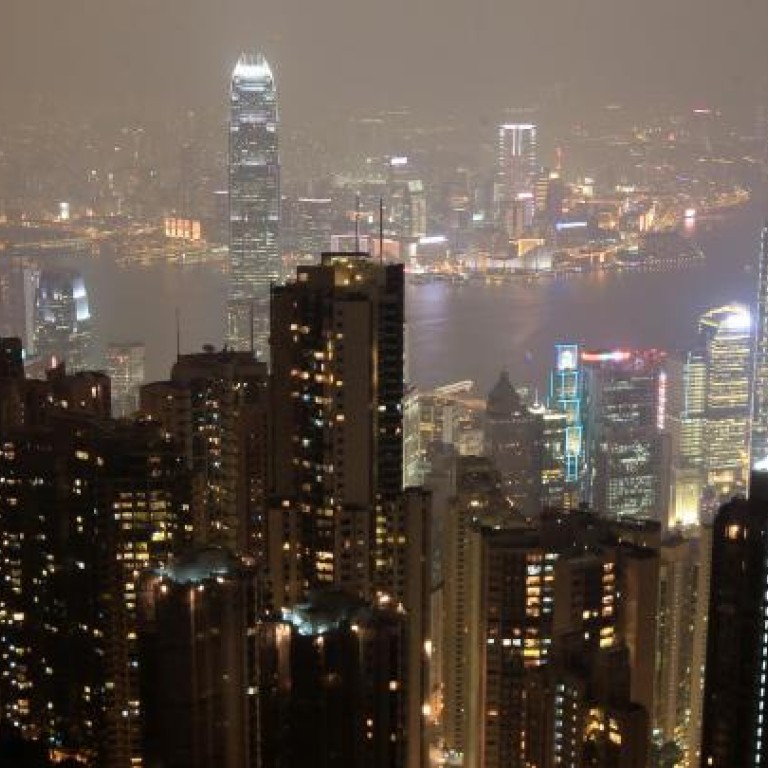
Power bill rebates for some as electricity costs set to rise
Cost of electricity likely to rise between 3 and 6 per cent for most residents, while heavy domestic users may face penalties
Electricity consumers will face higher bills next year, despite some users with low consumption being offered a discount in the latest tariffs proposed by the city's power utilities.

Both companies have introduced rebates for low users while CLP will also impose penalties on heavy domestic users.
The adjustments come after an outcry last year over "excessive" increases that were reduced after government intervention.
Critics said it was meaningless to offer discounts for some while raising prices overall.
"It is like a restaurant charging more for its dishes but asking its customers to go on a diet," legislator Lam Tai-fai said.
But the secretary for the environment, Wong Kam-sing, said officials had worked hard to cut the original proposals, ranging from 5 per cent to more than 7 per cent.
The outlook for 2014 remains uncertain, however, with CLP warning that its fuel costs will go up by HK$2.3 billion to HK$12 billion as it uses higher-priced gas.
CLP's per-unit price will go up from 98.7 cents to 104.5 cents, including a fuel charge of 22.4 cents per unit. Hongkong Electric's price will be 134.9 cents a unit, up from 131.1 cents, with a fuel cost of 40.2 cents per unit.
CLP users will have a rebate of 7 to 9 cents a kilowatt hour if they can keep their consumption below 400 kilowatt hours during a two-month billing period.
After the increase and the rebate, CLP said, up to 700,000 residential, or 35 per cent of the total, and 130,000 general business users would have their bills unchanged or even decreased by HK$3 to HK$6.
The company will also create a band of residential users consuming 3,400 units or more and charge this group the highest basic rate, excluding fuel costs, of 161 cents a unit.
Hongkong Electric will offer a 5 per cent discount for customers using less than 100 kilowatt hours a month. Ten per cent of users will benefit, paying HK$4.70 less.
The rises were reported to the Executive Council and the Legislative Council yesterday after the annual review with the Environment Bureau over expenditure and operating costs at the firms.
Last year's public outcry came after the companies proposed what the government described as excessive increases, of 9.2 per cent for CLP and 8 per cent for Hongkong Electric.
Eventually CLP cut its rise to 4.9 per cent and Hongkong Electric settled for 6.3 per cent.
CLP's managing director, Richard Lancaster, said the company had been able to keep its basic tariff unchanged this year because of better cost control and stronger sales this summer.
The increase was solely for fuel. "We will have new gas supply at prevailing international prices which is three times higher," Lancaster said.
This year CLP will also offer a special rebate of 2.1 cents, reflecting a refund of excessive rates and rents paid by the power firms to the government. The government has repaid CLP about HK$1.5 billion so far.
CLP has been warning of drastic tariff rises ahead as it shifts from its depleting gas reserves in Hainan to gas from Central Asia via the mainland.
Hongkong Electric's managing director, Tso Kai-sum, said the company would use HK$300 million from its tariff-stabilisation fund to lower its increase.
But Tso did not say when the company would pay a rebate for its refunded government rents and rates, estimated to be about HK$1 billion.
Dr William Chung Siu-wai of City University's energy and environment research institute said he was puzzled by the power firm's decision to offer an energy-saving rebate instead of a direct reduction in basic tariffs.
